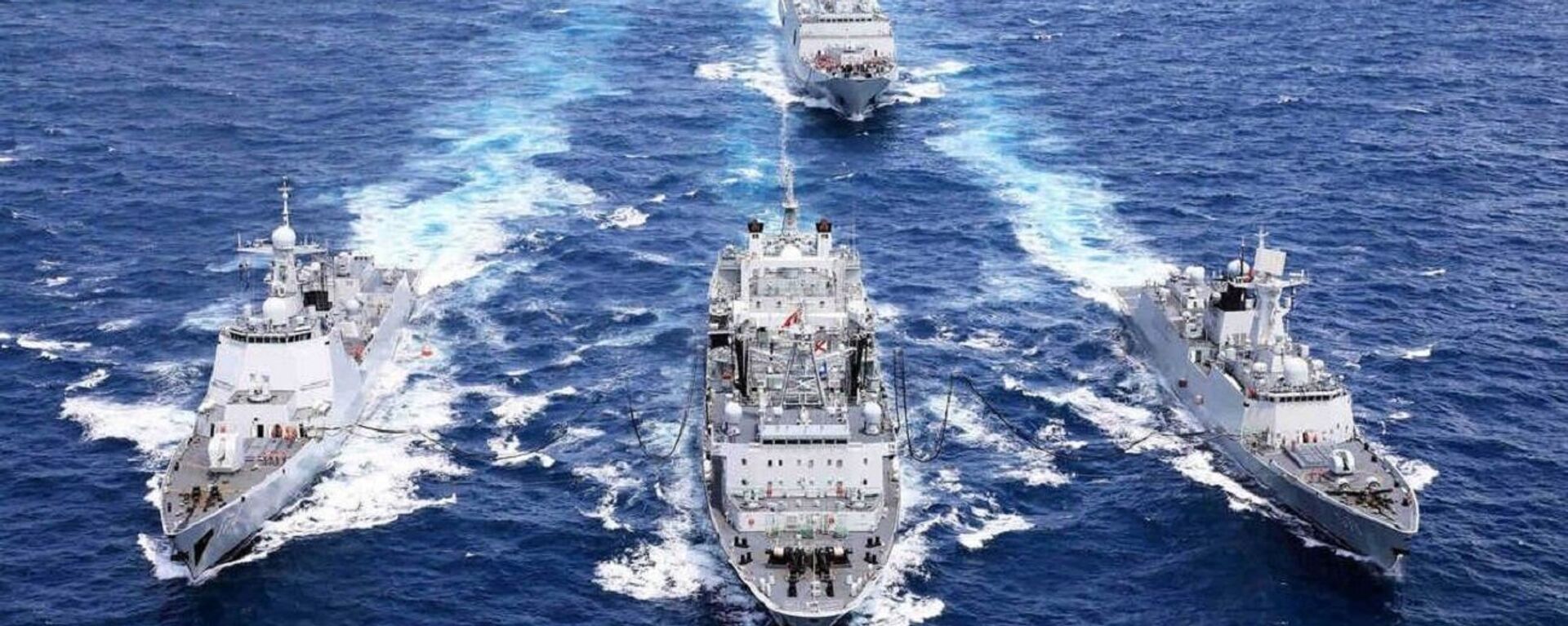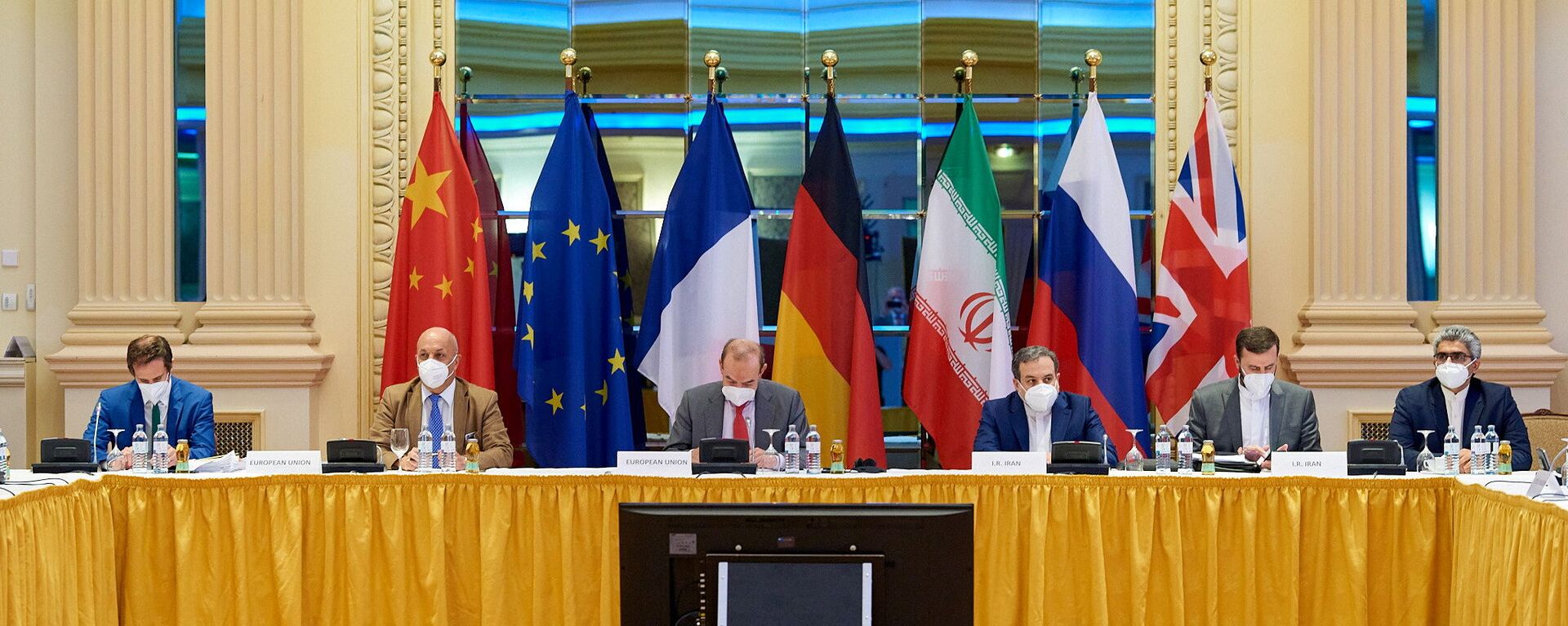Mossad Chief Vows Iran Will ‘Never Have’ Nuclear Weapons', Says ‘Bad Deal With Tehran ‘Intolerable’
13:06 GMT 03.12.2021 (Updated: 10:18 GMT 07.12.2022)
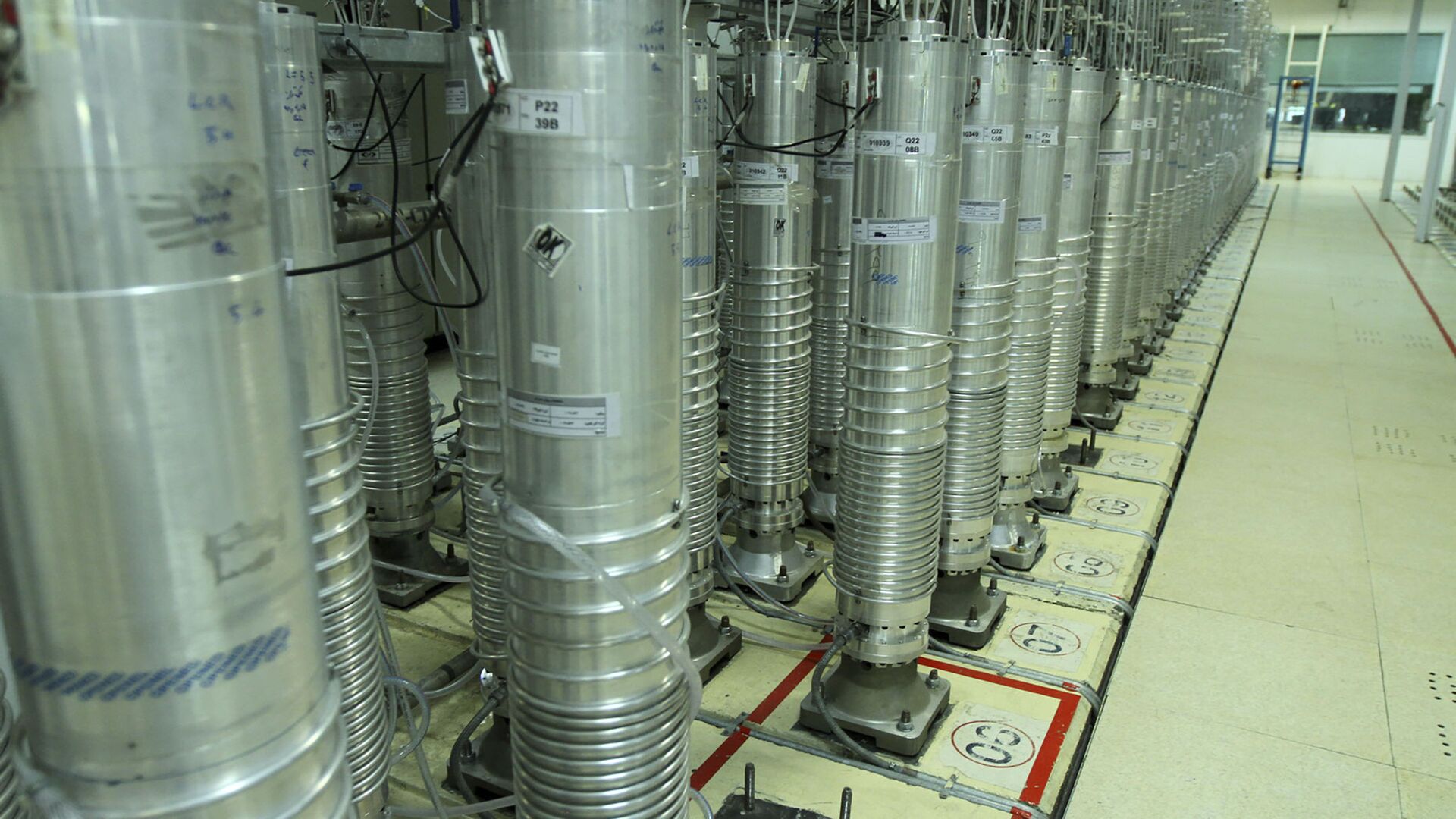
© AP Photo / Atomic Energy Organization of Iran
Subscribe
As the seventh round of talks on the Iranian nuclear deal and the lifting of US sanctions on Tehran began in Vienna on Monday, media reported that Israel had shared intelligence with the US and several allies that Tehran was taking technical steps to enrich uranium to 90%, which is only done during the preparation of nuclear weapons.
The chief of Israel's intelligence agency vowed on Thursday that Mossad would do “whatever it takes” to stop Iran from acquiring nuclear weapons.
"Iran will not have nuclear weapons – not in the coming years, not ever. This is my personal commitment: This is the Mossad’s commitment," said David Barnea at an award ceremony for 12 Mossad agents.
Barnea added: “Our eyes are open, we are alert, and together with our colleagues in the defense establishment, we will do whatever it takes to keep that threat away from the State of Israel and to thwart it in every way.”
#Mossad chief: 'Iran will never have nuclear weapons'
— Andreas Mountzouroulias 🇬🇷 (@andreasmoun) December 2, 2021
"Iran will never have a nuclear weapon, not in the coming years, not ever, that's my commitment, that's the commitment of the Mossad," Mossad chief David Barnea said on Thursday pic.twitter.com/NrVE3D6sM2
Barnea made the remarks as talks between Iran and other signatories to the 2015 Joint Comprehensive Plan of Action (JCPOA) regarding the revival of the Iran Nuclear deal resumed in Vienna on 29 November after a hiatus of five months. Jerusalem, which had always slammed the deal, has consistently accused Iran of secretly circumventing its restrictions and continuing to attempt to develop a nuclear weapon. Tehran officials have often responded to accusations that Iran is seeking nuclear weapons capability by nodding to Israel. They underscored the hypocrisy of Western countries tolerating Israel's suspected nuclear arsenal.Tel Aviv has maintained a policy of nuclear opacity, never officially confirming nor denying the existence of its nuclear programme.
Furthermore, media reports claimed Israel shared intelligence with the US and several European allies that Iran was allegedly taking technical steps to enrich uranium to 90%, a level that is only used in the preparation of nuclear weapons.
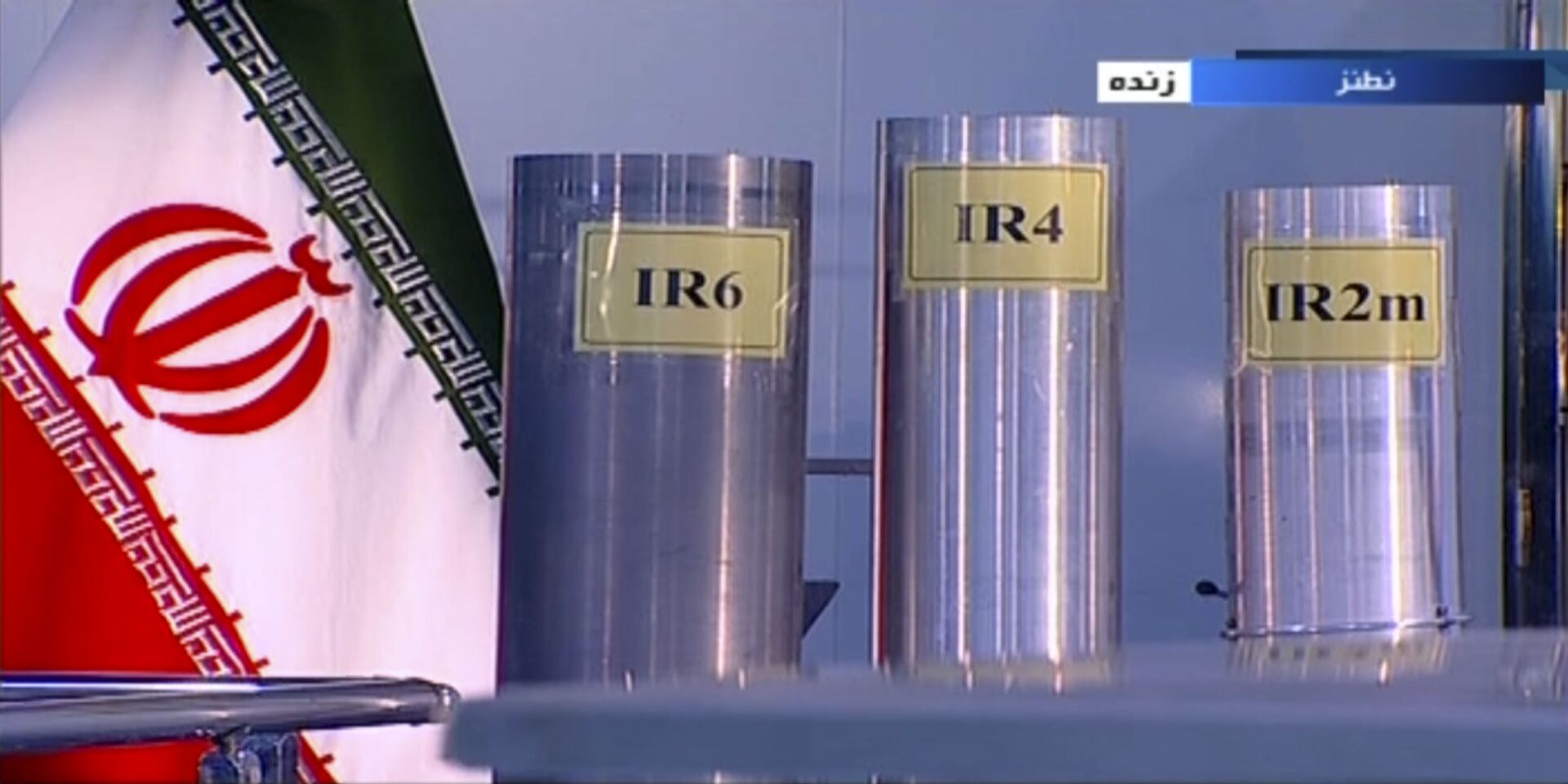
In this June 6, 2018 frame grab from Islamic Republic Iran Broadcasting, IRIB, state-run TV, three versions of domestically-built centrifuges are shown in a live TV program from Natanz, an Iranian uranium enrichment plant, in Iran
© AP Photo
The Mossad chief underscored that there was “no need for three enrichment sites… no need for thousands of active centrifuges — unless, that is, there is an intention to develop nuclear weapons.” He warned that a bad nuclear deal between world powers and Iran would be “intolerable” for Israel.
“A bad deal, which I hope will not be made, is intolerable to us… Iran is striving for regional hegemony, wages terrorism that we are blocking every day around the world, and is continuously threatening stability in the Middle East,” he insisted.
Natanz Nuclear Plant Targeted
The 2015 deal restricted the purity to which Iran can enrich uranium to 3.67%, far below the roughly 90% that is weapons-grade. However, after former US President Donald Trump withdrew from the accord in 2018, stringent sanctions were reimposed on the Islamic Republic.
Iran, which has consistently denied seeking nuclear arms, maintaining its programme was exclusively peaceful in nature, since the US walkout breached the deal with expanded uranium enrichment. Iran is now enriching to various levels, the highest being around 60%, according to the UN nuclear watchdog, the International Atomic Energy Agency. Tehran insisted it would be ready to return to the JCPOA’s limitations once it reenters force.
A September report from the IAEA put Iran stocks at 10kg enriched to 60 percent and 84 kg enriched to 20 percent.
Earlier on Thursday, the Jewish Chronicle reported that the Mossad was responsible for destroying the centrifuge hall at Iran’s Natanz Nuclear Fuel Enrichment Facility on 11 April 2021.The sabotage operation was purportedly carried out by as many as 10 top Iranian scientists recruited by Israel’s Mossad intelligence agency. The individuals purportedly believed they were acting on behalf of Iranian dissident groups outside the country. Some of the explosives had been planted as early as 2019, it was claimed, dropped into the facility by a drone and smuggled inside of a catering truck.
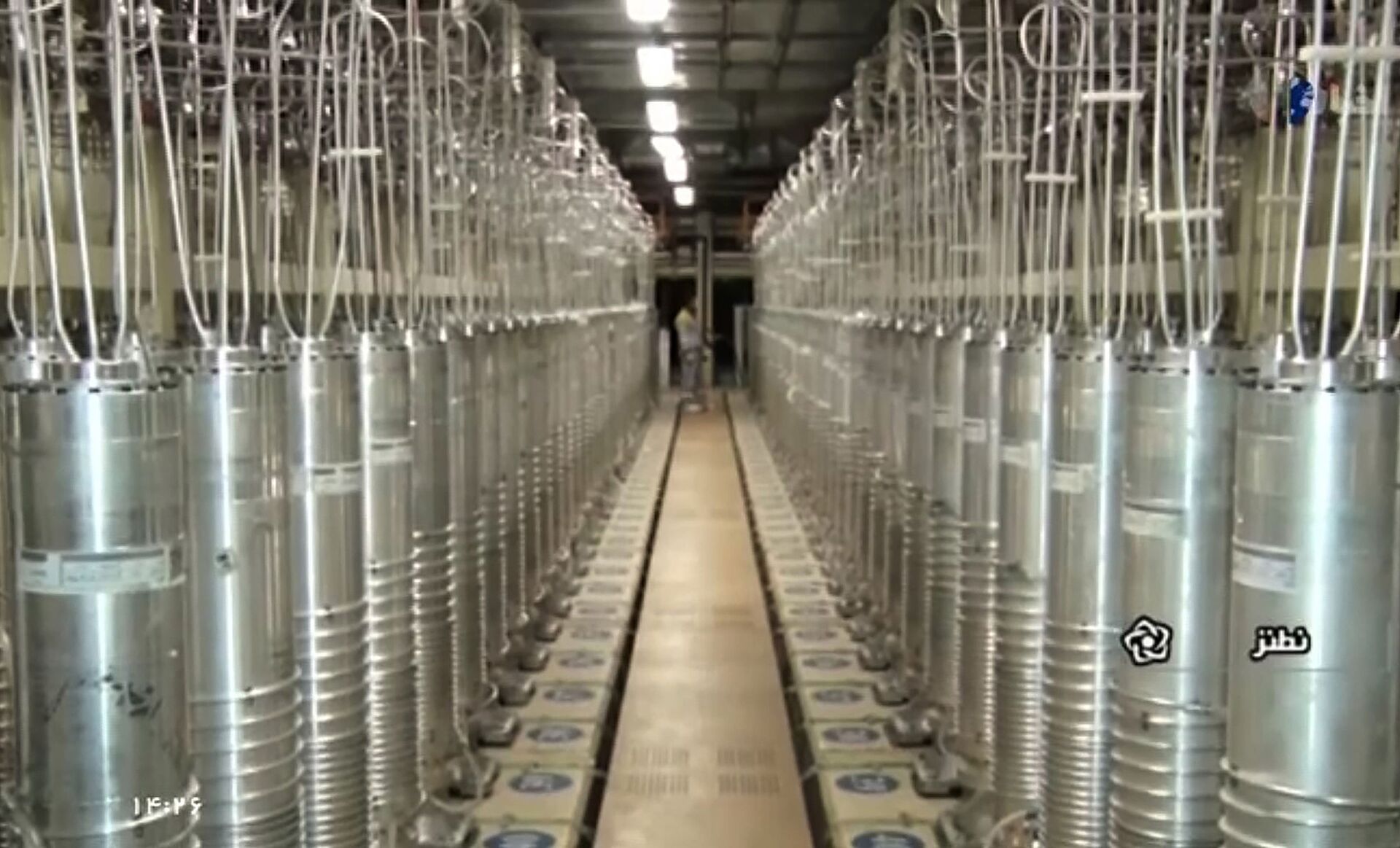
In this image made from April 17, 2021, video released by the Islamic Republic Iran Broadcasting, IRIB, state-run TV, various centrifuge machines line the hall damaged on Sunday, April 11, 2021, at the Natanz Uranium Enrichment Facility, some 200 miles (322 km) south of the capital Tehran, Iran
© AP Photo / IRIB
Iran had blamed Israel for what it called an act of "nuclear terrorism" , with the Israeli government refraining from publicly commenting on the attack, aside from acknowledging that it had happened.
The Jewish Chronicle also stated that Iranian agents were responsible for an earlier blast at Natanz in July 2020 that caused extensive damage to an above-ground facility and a missile drone attack on the Karaj research facility in June.
Natanz had previously been the target of a US-Israeli computer worm called Stuxnet, which caused extensive damage to uranium purification centrifuges in 2009 and 2010.
As Vienna talks on a revival of the Iran nuclear deal resumed, Iranian President Ebrahim Raisi who won the June 2021 election, has repeatedly stated that Tehran would only return to full compliance if the US lifts all economic sanctions, offering a guarantee that in future it would not withdraw from an agreement, as Trump did. After the final meeting of the Commission on the JCPOA programme at the request of three European countries including UK, Germany and France on Friday, Mehr news agency reported, European diplomats intend to return to their countries for further consultations.
